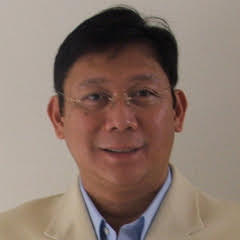SUMMARY
This is AI generated summarization, which may have errors. For context, always refer to the full article.
 When Vice President Jejomar Binay proposed in a media forum at Luneta Hotel a week ago that he is not corrupt but simply “innovative,” I was impressed by his glib response to the mounting corruption charges that he and his family are facing daily.
When Vice President Jejomar Binay proposed in a media forum at Luneta Hotel a week ago that he is not corrupt but simply “innovative,” I was impressed by his glib response to the mounting corruption charges that he and his family are facing daily.
Who would not like an innovator? Who would not be attracted to a potential leader who has the ability or capability to provide innovative political solutions to the host of problems facing the country?
Business as usual politics
And yet, I have a problem with his self-characterization.
I can’t for the life of me figure out how to reconcile the idea of an innovator with the overwhelming character of his style and work as a “business-as-usual” politician.
If one factors in his activities – the alleged kickbacks, vote-buying, and electoral support using illegal gifts or fraudulently awarded appointments or government contracts he and his family are accused of – how can we even talk of innovation in a positive or constructive sense?
And to think that VP Binay, when compared to other presidential aspirants, is earning the reputation for being a patronage politician par excellence. Just with his beso-beso with the masses, no one outmatches him.
Now it makes one wonder whether he really meant what he said or said what he meant. Perhaps it was a Freudian slip that subtly masks his internalized values or real character as a person. I wonder.
However, if his intention was to justify his and his family’s alleged corruption, his efforts are unconvincing.
Innovation as social deviance

Rather than clarifying matters of political importance or making me think of VP Binay in a redeeming light, his contention had a contrary effect.
In fact, his self-description of being an innovator brought to mind what American sociologist Robert Merton said about “innovation” – not as a quality of creative and imaginative sociocultural change, but as one of the matrices of deviance in society.
According to Merton’s Strain Theory of Deviance, conformity lies in pursuing cultural goals through legitimate means. Hence, social deviance is set up as the disparity between culturally approved goals and culturally approved means of society.
And so, when one pursues illegitimate means to achieve culturally approved goals – such as financial success, political success, and educational success – that person innovatively deviates, and is designated as an “innovator.”
The other matrices of deviance include a “ritualist” who rejects the cultural goals but accepts the legitimate means.
A “retreatist” rejects both cultural goals and legitimate means. Meanwhile, a “rebel” also rejects both cultural goals and legitimate means, but offers alternatives.
I think VP Binay is a twister of words here and can indeed be elusive. And yet, it is not his elusiveness that catches more of my attention but the repetitiveness of his responses to the mounting allegations of corruption.
Repetitive response
I must confess that VP Binay is not a unique case.
Other politicians like him have also transformed themselves into single-minded monotones. They remind me of Adolf Hitler’s propagandist, Paul Joseph Goebbels, who argued about the effect of “repetition.”
If you repeat something over and over again, people are bound to start believing it; such that, if you repeat a lie long enough, it becomes truth.
Notice how content VP Binay is: By downgrading all allegations of corruption as a mere swipe at his presidential aspiration, he gets away with not having to confront the alleged cases against him and his family.
And so, when the masses are conditioned to think that all accusations are politically motivated, all controversies are cognitively whisked away since there is no other explanation and there is nothing to explain. — Rappler.com
Efren Padilla is a full professor at California State University, East Bay. His areas of specialization are urban sociology, urban planning, and social demography. During his quarter breaks, he provides pro bono planning consultancy to selected LGUs in the Philippines.
Add a comment
How does this make you feel?
There are no comments yet. Add your comment to start the conversation.